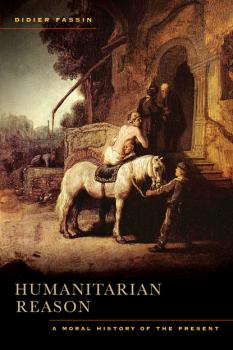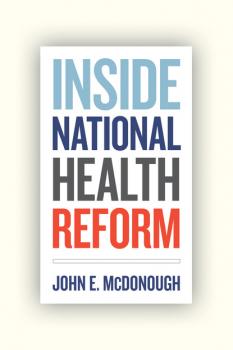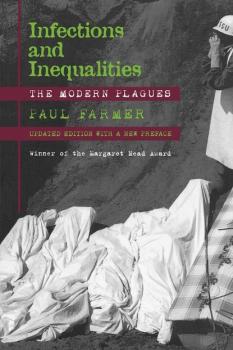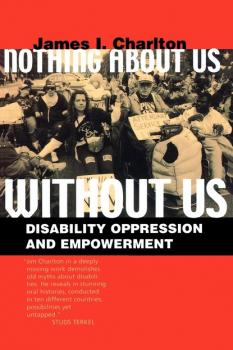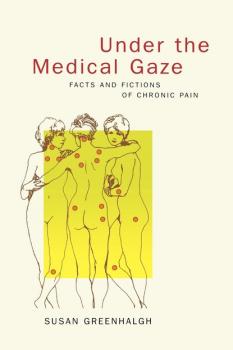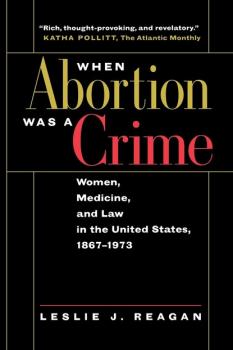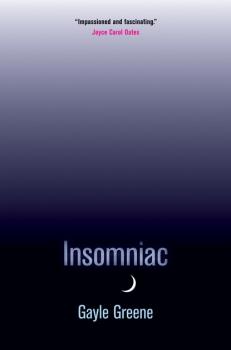Медицина
Различные книги в жанре МедицинаHumanitarian Reason
In the face of the world’s disorders, moral concerns have provided a powerful ground for developing international as well as local policies. Didier Fassin draws on case materials from France, South Africa, Venezuela, and Palestine to explore the meaning of humanitarianism in the contexts of immigration and asylum, disease and poverty, disaster and war. He traces and analyzes recent shifts in moral and political discourse and practices – what he terms «humanitarian reason»– and shows in vivid examples how humanitarianism is confronted by inequality and violence. Deftly illuminating the tensions and contradictions in humanitarian government, he reveals the ambiguities confronting states and organizations as they struggle to deal with the intolerable. His critique of humanitarian reason, respectful of the participants involved but lucid about the stakes they disregard, offers theoretical and empirical foundations for a political and moral anthropology.
Inside National Health Reform
This indispensable guide to the Affordable Care Act, our new national health care law, lends an insider’s deep understanding of policy to a lively and absorbing account of the extraordinary—and extraordinarily ambitious—legislative effort to reform the nation’s health care system. Dr. John E. McDonough, DPH, a health policy expert who served as an advisor to the late Senator Edward Kennedy, provides a vivid picture of the intense effort required to bring this legislation into law. McDonough clearly explains the ACA’s inner workings, revealing the rich landscape of the issues, policies, and controversies embedded in the law yet unknown to most Americans. In his account of these historic events, McDonough takes us through the process from the 2008 presidential campaign to the moment in 2010 when President Obama signed the bill into law. At a time when the nation is taking a second look at the ACA, <i>Inside National Health Reform</i> provides the essential information for Americans to make informed judgments about this landmark law.
Infections and Inequalities
Paul Farmer has battled AIDS in rural Haiti and deadly strains of drug-resistant tuberculosis in the slums of Peru. A physician-anthropologist with more than fifteen years in the field, Farmer writes from the front lines of the war against these modern plagues and shows why, even more than those of history, they target the poor. This "peculiarly modern inequality" that permeates AIDS, TB, malaria, and typhoid in the modern world, and that feeds emerging (or re-emerging) infectious diseases such as Ebola and cholera, is laid bare in Farmer's harrowing memoir rife with stories about diseases and human suffering.<BR /><BR /> Using field work and new scholarship to challenge the accepted methodologies of epidemiology and international health, Farmer points out that most current explanatory strategies, from "cost-effective treatment" to patient "noncompliance," inevitably lead to blaming the victims. In reality, larger forces, global as well as local, determine why some people are sick and others are shielded from risk. Yet this moving autobiography is far from a hopeless inventory of insoluble problems. Farmer writes of what can be done in the face of seemingly overwhelming odds, by physicians and medical students determined to treat those in need: whether in their home countries or through medical outreach programs like Doctors without Borders. <I>Infections and Inequalities</I> weds meticulous scholarship in medical anthropology with a passion for solutions—remedies for the plagues of the poor and the social illnesses that have sustained them.
Nothing About Us Without Us
James Charlton has produced a ringing indictment of disability oppression, which, he says, is rooted in degradation, dependency, and powerlessness and is experienced in some form by five hundred million persons throughout the world who have physical, sensory, cognitive, or developmental disabilities. <i>Nothing About Us Without Us</i> is the first book in the literature on disability to provide a theoretical overview of disability oppression that shows its similarities to, and differences from, racism, sexism, and colonialism. Charlton's analysis is illuminated by interviews he conducted over a ten-year period with disability rights activists throughout the Third World, Europe, and the United States.<br /><br /> Charlton finds an antidote for dependency and powerlessness in the resistance to disability oppression that is emerging worldwide. His interviews contain striking stories of self-reliance and empowerment evoking the new consciousness of disability rights activists. As a latecomer among the world's liberation movements, the disability rights movement will gain visibility and momentum from Charlton's elucidation of its history and its political philosophy of self-determination, which is captured in the title of his book.<br /><br /> <i>Nothing About Us Without Us</i> expresses the conviction of people with disabilities that they know what is best for them. Charlton's combination of personal involvement and theoretical awareness assures greater understanding of the disability rights movement.
Under the Medical Gaze
This compelling account of the author's experience with a chronic pain disorder and subsequent interaction with the American health care system goes to the heart of the workings of power and culture in the biomedical domain. It is a medical whodunit full of mysterious misdiagnosis, subtle power plays, and shrewd detective work. Setting a new standard for the practice of autoethnography, Susan Greenhalgh presents a case study of her intense encounter with an enthusiastic young specialist who, through creative interpretation of the diagnostic criteria for a newly emerging chronic disease, became convinced she had a painful, essentially untreatable, lifelong muscle condition called fibromyalgia. Greenhalgh traces the ruinous effects of this diagnosis on her inner world, bodily health, and overall well-being. <I>Under the Medical Gaze </I>serves as a powerful illustration of medicine's power to create and inflict suffering, to define disease and the self, and to manage relationships and lives.<br /><br />Greenhalgh ultimately learns that she had been misdiagnosed and begins the long process of undoing the physical and emotional damage brought about by her nearly catastrophic treatment. In considering how things could go so awry, she embarks on a cogent and powerful analysis of the sociopolitical sources of pain through feminist, cultural, and political understandings of the nature of medical discourse and practice in the United States. She develops fresh arguments about the power of medicine to medicalize our selves and lives, the seductions of medical science, and the deep, psychologically rooted difficulties women patients face in interactions with male physicians. In the end, <I>Under the Medical Gaze </I>goes beyond the critique of biomedicine to probe the social roots of chronic pain and therapeutic alternatives that rely on neither the body-cure of conventional medicine nor the mind-cure of some alternative medicines, but rather a broader set of strategies that address the sociopolitical sources of pain.
When Abortion Was a Crime
As we approach the 30th anniversary of <i>Roe v. Wade</i>, it's crucial to look back to the time when abortion was illegal. Leslie Reagan traces the practice and policing of abortion, which although illegal was nonetheless widely available, but always with threats for both doctor and patient. In a time when many young women don't even know that there was a period when abortion was a crime, this work offers chilling and vital lessons of importance to everyone.<br /><br />The linking of the words «abortion» and «crime» emphasizes the difficult and painful history that is the focus of Leslie J. Reagan's important book. Her study is the first to examine the entire period during which abortion was illegal in the United States, beginning in the mid-nineteenth century and ending with <i>Roe v. Wade</i> in 1973. Although illegal, millions of abortions were provided during these years to women of every class, race, and marital status. The experiences and perspectives of these women, as well as their physicians and midwives, are movingly portrayed here.<br /><br />Reagan traces the practice and policing of abortion. While abortions have been typically portrayed as grim «back alley» operations, she finds that abortion providers often practiced openly and safely. Moreover, numerous physicians performed abortions, despite prohibitions by the state and the American Medical Association. Women often found cooperative practioners, but prosecution, public humiliation, loss of privacy, and inferior medical care were a constant threat.<br /><br />Reagan's analysis of previously untapped sources, including inquest records and trial transcripts, shows the fragility of patient rights and raises provocative questions about the relationship between medicine and law. With the right to abortion again under attack in the United States, this book offers vital lessons for every American concerned with health care, civil liberties, and personal and sexual freedom.
Birth Models That Work
This groundbreaking book takes us around the world in search of birth models that work in order to improve the standard of care for mothers and families everywhere. The contributors describe examples of maternity services from both developing countries and wealthy industrialized societies that apply the latest scientific evidence to support and facilitate normal physiological birth; deal appropriately with complications; and generate excellent birth outcomes—including psychological satisfaction for the mother. The book concludes with a description of the ideology that underlies all these working models—known internationally as the midwifery model of care.
Partner to the Poor
For nearly thirty years, anthropologist and physician Paul Farmer has traveled to some of the most impoverished places on earth to bring comfort and the best possible medical care to the poorest of the poor. Driven by his stated intent to «make human rights substantial,» Farmer has treated patients—and worked to address the root causes of their disease—in Haiti, Boston, Peru, Rwanda, and elsewhere in the developing world. In 1987, with several colleagues, he founded Partners In Health to provide a preferential option for the poor in health care. Throughout his career, Farmer has written eloquently and extensively on these efforts. <i>Partner to the Poor</i> collects his writings from 1988 to 2009 on anthropology, epidemiology, health care for the global poor, and international public health policy, providing a broad overview of his work. It illuminates the depth and impact of Farmer’s contributions and demonstrates how, over time, this unassuming and dedicated doctor has fundamentally changed the way we think about health, international aid, and social justice.<br /><br />A portion of the proceeds from the sale of this book will be donated to Partners In Health.
Insomniac
I can't work, I can't think, I can't connect with anyone anymore. . . . I mope through a day's work and haven't had a promotion in years. . . . It's like I'm being sucked dry, eaten away, swallowed up, coming unglued. . . . These are voices of a few of the tens of millions who suffer from chronic insomnia. In this revelatory book, Gayle Greene offers a uniquely comprehensive account of this devastating and little-understood condition. She has traveled the world in a quest for answers, interviewing neurologists, sleep researchers, doctors, psychotherapists, and insomniacs of all sorts. What comes of her extraordinary journey is an up-to-date account of what is known about insomnia, providing the information every insomniac needs to know to make intelligent choices among medications and therapies. Insomniac is at once a field guide through the hidden terrain inhabited by insomniacs and a book of consolations for anyone who has struggled with this affliction that has long been trivialized and neglected.
Born in the USA
In this rare, behind-the-scenes look at what goes on in hospitals across the country, a longtime medical insider and international authority on childbirth assesses the flawed American maternity care system, powerfully demonstrating how it fails to deliver safe, effective care for both mothers and babies. Written for mothers and fathers, obstetricians, nurses, midwives, scientists, insurance professionals, and anyone contemplating having a child, this passionate exposé documents how, in the most expensive maternity care system in the world, women have lost control over childbirth and what the disturbing results of this phenomenon have been. <I>Born in the USA </I>examines issues including midwifery and the safety of out-of-hospital birth, how the process of becoming a doctor can adversely affect both practitioners and their patients, and why there has been a rise in the use of risky but doctor-friendly interventions, including the use of Cytotec, a drug that has not been approved by the FDA for pregnant women. Most importantly, this gripping investigation, supported by many troubling personal stories, explores how women can reclaim the childbirth experience for the betterment of themselves and their children. <br /><br /><i>Born in the USA </i>tells:<br /><br /><b>* Why women are 70% more likely to die in childbirth in America than in Europe<br /><br />* What motivates obstetricians to use dangerous and unnecessary drugs and procedures<br /><br />* How the present malpractice crisis has been aggravated by the fear of accountability<br /><br />* Why procedures such as cesarean section and birth inductions are so readily used</b>
